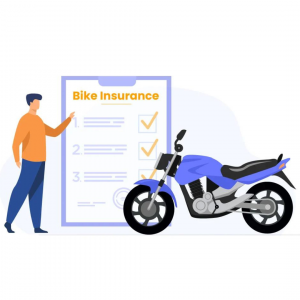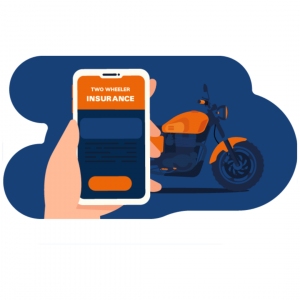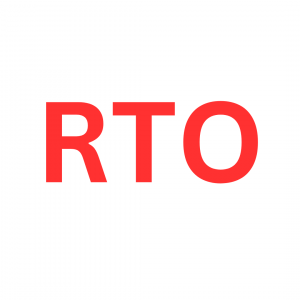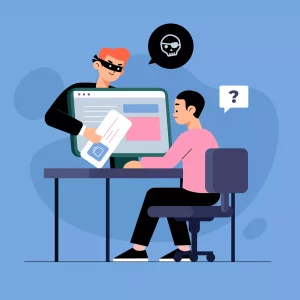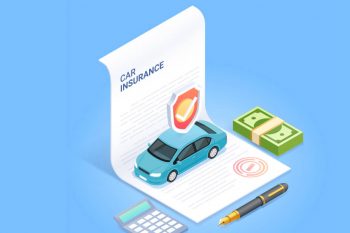Used Car Insurance
Used car insurance is a subset of car insurance designed to safeguard pre-owned, used, or antique vehicles. It protects a used automobile from unforeseen risks and misfortunes that could cause significant loss or damage, such as a car crash. The coverage provided by an old car insurance policy is equivalent to that of a new automobile under a normal car insurance policy. Therefore, a used car insurance coverage protects the vehicle against risks related to own damage as well as third party liabilities.
WHY SHOULD YOU GET A SECOND HAND CAR INSURED?
It is crucial to insure an antique vehicle. In reality, the law requires that you have at least third-party insurance for your vehicle, regardless of how old or new it is. Top reasons to purchase an old auto insurance coverage are listed below.
- Guards Against Risks: A comprehensive auto insurance policy offers protection against harm to your antique vehicle in the event of an accident, fire damage, or harm from man-made or natural disasters.
- Required for Every Vehicle: Owning a new or vintage car doesn’t matter. According to the Motor Vehicles Act, you must get a Third-Party Car Insurance Plan at the very least. Operating a vehicle without a current automobile insurance policy is against the law and carries penalties.
- Coverage for Third-Party Liability: The Old Car Insurance Policy provides coverage for injuries or fatalities to third parties. Your old car’s insurance policy will pay for losses or damages if it causes harm to someone else or injures someone else in an accident.
- Personal Accident Coverage: An Old Car Insurance Plan offers protection against injury or accidental death to the driver or owner in addition to covering your vehicle. For example, in the event that you sustain injuries in an automobile accident, your insurance coverage will pay for the costs of medical care. Please take note that this cover is required and must be ordered separately.
- Theft of the Insured Vehicle: One of the most well-known crimes that is increasing in our nation is car theft. Having an outdated auto insurance coverage is the best defense against this kind of crime. When purchasing insurance, you can ensure that you get the appropriate amount from your insurer in the event of theft by setting the correct Insured Declared Value (IDV).
HOW TO TRANSFER OWNERSHIP AND INSURANCE OF SECOND HAND CAR
The first thing you should do after purchasing a used car is get ownership transferred to your name. In a similar vein, the used car can include a short-term or long-term insurance contract. Therefore, it’s also essential to transfer the insurance. The procedures listed below can be used to complete the insurance and car ownership transfers.
- Visit the Regional Transport Office (RTO) in your area and turn in the application for the transfer of vehicle ownership.
- Send in and pay for any pertinent documentation.
- You can get in touch with the insurer for the insurance transfer after the RC transfer is complete.
- Send in the updated proposal form and any necessary supporting documentation.
- The insurance company will transfer the policy to your name once you pay the insurance transfer expenses.
HOW TO BUY/RENEW USED CAR INSURANCE POLICY ONLINE
To purchase used car insurance or renew your old auto insurance online, simply follow the instructions below.
Step 1: Visit the insurance company’s official website.
Step 2: Enter the make, model, and/or version of the vehicle, the registration date, the registration number, and the city in which you drive.
Step 3: Next, select between a comprehensive insurance plan and a third-party plan.
Step 4: Enter information about the prior insurance policy, including the No Claim Bonus details, policy expiration date, and claims made.
Step 5: After that, you will receive a quote for an insurance plan that includes the cost of the premium.
Step 6: If you have chosen a comprehensive insurance policy, you can choose available add-ons to expand the coverage for a small premium increase.
Step 7: Use one of the various digital payment methods to finish the payment procedure.
Step 8: You will receive an email with the Certificate of Insurance as soon as the payment is finalized. In this manner, you can purchase used auto insurance or finish the procedure of renewing your previous auto insurance.
POINTS TO REMEMBER WHILE BUYING SECOND HAND CAR INSURANCE
Purchasing auto insurance for vintage vehicles protects you from monetary and legal obligations. Therefore, purchasing the appropriate insurance policy for a used car is essential. Here are some things to consider when purchasing used auto insurance.
- Examine Insurance Plans: Examine insurance policies provided by several insurers prior to purchasing used auto insurance. Before completing the purchase, make sure to review the terms and conditions of the auto insurance.
- Assess the Value of Your Old Car: Find out your old car’s current market value before purchasing auto insurance for it. Every year that goes by, the value decreases, and the IDV is determined based on the vehicle’s value. The primary determinant of the insurance premium is the IDV.
- Depreciation Rate: A car’s value decreases with every year that goes by. The depreciation value is subtracted from the total claim settlement amount during the claim settlement process. For this reason, before purchasing an insurance coverage, you should be informed of your car’s rate of depreciation.
- Add-on Covers: You can enquire about the possible add-ons from the insurer when purchasing a motor insurance policy for your used vehicle. Important add-ons including the Engine Protect cover, Passenger cover, and Consumables cover are available for request. Long-term benefits will offset the little higher premium you would ultimately pay.
- Claim History: If you are renewing an existing policy or changing insurance carriers, be sure to review the claim history of the prior policy. You are eligible for the insurer’s No Claim Bonus discount if you have never filed a claim. Reductions of up to 50% are available based on the number of years without a claim.
- Additional Documents: By adding an anti-theft or security system to your old automobile, you can receive a reduction on your insurance coverage in addition to the No Claim Bonus. The insurer may lower the insurance premium due to the decreased risk of theft.
- Check Claim Settlement Process: Examine the insurance company’s claim settlement procedure in detail before purchasing an insurance policy. Make sure filing a claim is an easy and hassle-free process, and always select an insurance with a fast claim settlement turnaround time.
- Transfer the policy or buy a new one: If you purchase a used vehicle, you have 14 days from the date of purchase to transfer the auto insurance policy. After that, you can obtain new auto insurance that meets your needs.
FACTORS AFFECTING THE USED CAR INSURANCE PREMIUM
- Make and Model: The second-hand car’s make and model significantly affects the cost of auto insurance. Because of the high market value of the vehicle, the premium will be significant if the used automobile is an expensive one.
- Current Market Value: The car’s insured declared value is the only thing that determines its market worth. Additionally, the insurer determines the insurance rate based on the IDV. The larger the premium, the higher the car’s worth. Therefore, while purchasing antique auto insurance, always be sure to state the car’s true market worth.
- Mileage or Distance Driven: Mileage is a typical element that affects insurance premiums regardless of the age of the vehicle. One of the key elements influencing the vintage auto insurance rate is the amount of kilometers driven.
SECOND HAND CAR Vs NEW CAR: WHAT SHOULD YOU BUY?
| PARAMETER | SECOND HAND CAR | NEW CAR |
|---|---|---|
| Budget | Lowed due to car’s value | High comparatively |
| Preference | Good for people on low budget | Good for anyone who has the budget and wants the latest vehicles on the market |
| 1st Time Buyer | Yes | Yes |
| Interest rate | Higher | Lower |
| Varieties | Third Party Add On | Third party Add On |
| Insurance Term and Warranty | Depends on Car Age | Depends on Car Age |
FAQs
- Is it necessary to insure a second-hand car?
Yes, it’s crucial to insure a used car as it protects against unforeseen risks and liabilities, as well as being a legal requirement in most places. - What does used car insurance cover?
Used car insurance typically covers risks such as accidents, fire damage, theft, natural disasters, and third-party liabilities. - How do I transfer ownership and insurance for a second-hand car?
After purchasing a used car, you need to transfer ownership at the Regional Transport Office (RTO) and then contact your insurer to transfer the insurance policy. - Can I buy or renew used car insurance online?
Yes, you can buy or renew used car insurance online by visiting the insurance company’s website, providing vehicle details, selecting a plan, and completing the payment process. - What factors affect the premium for used car insurance?
Factors such as the make and model of the car, its current market value, mileage or distance driven, and the insured declared value (IDV) can affect the insurance premium. - Do I need personal accident coverage for my second-hand car?
Personal accident coverage is important as it protects the driver or owner against injury or accidental death in addition to covering the vehicle. - Can I add-on additional coverage to my used car insurance policy?
Yes, you can inquire about add-ons such as engine protect cover, passenger cover, and consumables cover to enhance your insurance coverage. - What documents do I need to provide when purchasing used car insurance?
You may need to provide documents such as vehicle registration details, previous insurance policy information, and proof of identity. - How can I lower my insurance premium for a second-hand car?
You can lower your insurance premium by adding anti-theft or security systems to your car, maintaining a good claim history, and choosing appropriate add-ons. - What is the claim settlement process for used car insurance policies?
It’s important to understand the claim settlement process of your insurance company, ensuring it’s easy and hassle-free. Fast claim settlement turnaround times are preferable.


